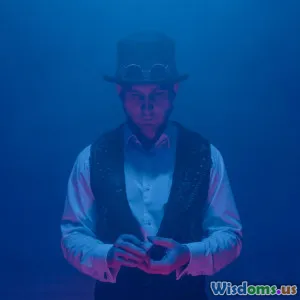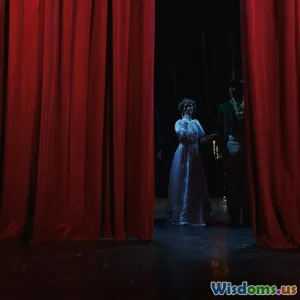
Magic in Popular Culture
6 min read Explore the enchanting world of magic in popular culture, from films to literature, and its profound impact on society. (0 Reviews)
Magic in Popular Culture
Magic has long enchanted audiences across the globe, captivating both young and old through its allure and mystery. It transcends age groups and cultural backgrounds, becoming a significant part of popular culture. This article explores the various representations of magic in films, literature, and other media, examining its profound impact on society and our understanding of reality.
The Roots of Magic in Storytelling
From ancient folklore to modern-day narratives, stories involving magic have been a staple of human storytelling. Ancient civilizations, such as the Egyptians and Greeks, often included magical elements in their myths, reflecting humanity's fascination with the supernatural. These tales were not merely entertainment; they provided moral lessons, cultural values, and explanations for the world.
As storytelling evolved, so did the portrayal of magic. In medieval literature, magic often represented a battle between good and evil, embodied by characters like Merlin and Morgana in Arthurian legends. Fast forward to the modern era, and we find a plethora of magical narratives shaping popular culture, from the enchanting worlds of J.K. Rowling's Harry Potter to the whimsical adventures of Lewis Carroll's Alice's Adventures in Wonderland.
Magic in Cinema
The influence of magic in cinema is profound. Movies such as The Prestige, Now You See Me, and Doctor Strange showcase not just the illusions of stage magic but also delve into deeper themes of deception, identity, and the ethics of power.
Harry Potter and Beyond
The Harry Potter series is perhaps the most significant example of magic's impact on popular culture in recent history. It has introduced generations to a fantastical world where magic is an integral part of life. The series has not only sparked a renewed interest in magic but also inspired a cottage industry of related merchandise, theme parks, and spin-offs, proving that magic can indeed shape the cultural landscape.
The Rise of Illusionists in Film
Films featuring illusionists, like The Illusionist and The Great Houdini, highlight the complex relationship between reality and illusion. These narratives often explore the sacrifices artists make for their craft, the nature of belief, and the power of perception. They invite audiences to question what is real and what is merely a trick of the light.
Magic in Literature
Literature has always been a fertile ground for magic, giving rise to entire genres. Fantasy literature, in particular, thrives on magical narratives. Authors like J.R.R. Tolkien and C.S. Lewis have created entire worlds where magic is a fundamental element. These stories often reflect societal issues, such as the struggle for power, the fight against oppression, and the importance of friendship.
Magic Realism
In a different vein, magic realism blends the magical with the mundane, as seen in the works of Gabriel García Márquez and Isabel Allende. This literary style offers a unique perspective on reality, allowing readers to explore profound truths about the human experience through fantastical elements intertwined with everyday life.
The Impact of Magic on Society
Magic in popular culture is not merely entertainment; it has a significant impact on societal norms and perceptions. It encourages imagination and creativity, often providing a means of escape from reality. Magic also serves as a metaphor for deeper philosophical questions about existence, truth, and morality.
Fostering Curiosity and Creativity
The allure of magic fosters curiosity, encouraging people to question the world around them. This curiosity can lead to exploration in various fields, including science, art, and philosophy. By inspiring individuals to seek answers and embrace creativity, magic plays a vital role in artistic and intellectual pursuits.
Challenging Perceptions
Moreover, magic challenges our perceptions of reality. It invites us to consider the unseen forces that shape our lives, whether they be social constructs or personal beliefs. As audiences engage with magical narratives, they are often prompted to reflect on their own realities, leading to deeper understanding and empathy.
Conclusion
Magic is an integral part of popular culture that transcends boundaries and resonates with audiences worldwide. From enchanting stories in literature to mesmerizing visuals in film, magic continues to captivate our imaginations and challenge our perceptions. As we explore the multifaceted nature of magic, we uncover not only its entertainment value but also its potential to inspire curiosity, creativity, and a deeper understanding of the human experience. Whether in a book, a movie, or a stage performance, magic remains a powerful force that shapes our cultural narratives and enriches our lives.
Rate the Post
User Reviews
Popular Posts




















